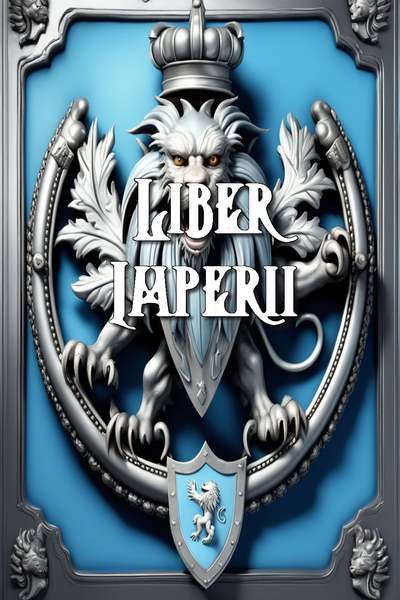Upon Magic and Its Origins and Applications – A Treatise
By Mary Elizabeth Browning
Translated by Lyriel Elhana
Magical Affinity
While magic is best described as a lake, not all wielders view the lake or use the water the same. This is known as “Affinity”. Affinity is the individual’s natural pre-disposition toward how they access and wield the magic within them. Most affinities can be used by all magic users, almost all users excel at particular disciplines. Should someone adept at conjuring attempt to control a person they may succeed, but the magic drain would be exponentially higher, and the control factor would be exponentially lower.
While there are as many names for the various affinities as there are, seemingly, stars in the sky, for brevity’s sake only the most widely accepted names will be discussed in this document.
Conjurer
The conjurer, as the affinity name suggests, is adept at visualizing and making real or, at least real enough, items of use in the moment. The items are not corporeal in the true sense of touching a person or thing, but by shaping and forming the magic within her, the conjurer can bring into her hands, for instance, a broadsword. While often blinking in and out of existence when not actively engaged in whatever activity the conjurer is currently doing and seemingly bleeding a thick mist, the item is real enough to impact other living things or objects which are corporeal.
To use the previous example of a broadsword, the conjurer imagines the shape and form of the broadsword and, through tapping into the magical well within her, brings it into a quasi-physical form. While having no weight, should the conjured weapon strike an enemy combatant the magic will react to that strike and cut deeply into the person, much like a broadsword would. Should the user imagine, say, a pistol, the pistol, while having no weight and recoil, nor in fact real bullets to speak of, will still do damage to whomever it is aimed and fired upon as the bullet and pistol are made up of a physical manifestation of the conjurer’s magic affinity.
While very powerful with nearly unlimited potential, the conjurer’s ability is also wholly dependent upon their own skills. A conjured broadsword is of as much use in the hands of a novice as a real broadsword would be. Coupled with a magical drain which grows heavier and heavier the longer the conjured item is in existence makes the conjurer oftentimes a danger to herself. Many are the tales of an inexperienced conjurer doing little damage to an enemy she is facing while suffering from Ebb or Vastum due to over-exertion.
Weaver
The weaver affinity is, by its very nature, a chaotic discipline. By tapping into the magic within her she is able to manipulate objects, changing their position or even composition. A skilled weaver can manipulate the very forces of gravity itself for a time, levitating herself or other objects into the air. She can then fling those objects at potential enemy combatants or act as a scout by levitating above a line of trees.
Particularly powerful weavers can cause a wall of dirt to erupt in front of her and then, through manipulation of the object, in this case the dirt, turn it into a solid wall of mud or even stone. She could even, conceivably create a wall of water and turn it into ice or vaporize it into a heavy mist obscuring her position.
Much like conjurers, however, the amount of magic required to perform their craft is heavy. The weaver also is limited in the number of objects they can interact with, each item beyond the first requiring exponentially more magic and concentration to manipulate. Weavers are also, generally, limited in the size of an object she can interact with. A stone no more than a pound would be easy for an experienced weaver. A boulder weighing several hundred pounds would be out of the realm of possibility.
A weaver is also greatly limited by the range of an object she wants to interact with. The further from herself the object is the less control she has over that object. Most weavers, typically, have a range of no more than 50 meters, though tales of weavers controlling things a hundred meters or even further away have been heard, there has been no substantiated empirical evidence for these claims so they must remain purely speculative.
Summoner
The summoner is a peculiar affinity as it depends not on the magical well of the user so much as the connection to the plane of existence, they have taken to calling Malikhal, though its actual name is unknown. Not only must the connection to Malikhal be particularly strong the summoner’s will and resistance to the creatures they drag out of this world must be exceedingly high.
By tapping into the well of their magic the summoner creates a gate through the Mistways connecting all worlds to the realm of Malikhal. Though no one has ever survived a return trip from Malikhal, stories tell of many horrors imprisoned therein.
Once this gate has been established, the summoner calls upon the demon or demons they have chosen to serve them, entering into a temporary contract with the creature. This contract is binding for both parties, though inexperienced summoners have found to their great peril the residents of Malikhal are both wily and treacherous.
There are five main demon types which can be summoned, each requiring escalating levels of skill and power. The types are as follows:
Imp
The most common demon is the fiery imp. They are generally small and wizened creatures with a mouthful of over-sized fangs roughly the size of a small child with wiry black, sparse fur over deep or pale red skin. The most plentiful, they are also the weakest. While sufficient numbers can take down most prey, their main ability is summoning and throwing small spheres of fire at distant targets. In this way they can be used as archers to a limited extent.
Hellhound
The hellhound can be either summoned individually or as packs accompanying other demons depending on the summoner’s magic well, skill, and power. Hellhounds are roughly the size of large dogs with a bone crest sticking up from their spines.
Fiery drool spills from their maws and gouts of flame burst from their mouths and nostrils. Though not particularly powerful, they are elusive and fast and can quickly overwhelm even the most well-prepared enemy.
Harpy
The harpy are demons of the air. Roughly the size of an elf or very small human the harpy has a female body with the legs and wings of a large vulture. While their magic alone is relatively formidable, they are very quick and vicious, with the ability to hurl razor sharp feathers at multiple enemies simultaneously. While far more powerful than the imp they are ill-suited to close combat, preferring to stay back and attack from the air where their speed and maneuverability serves them well.
Lamia
The lamia are demons of the earth. 4 meters long if stretched to their full length the lamia are half naked woman and half serpent. They have powerful magic which enables them to manipulate the earth to drop unsuspecting targets to their doom through sudden pits or to encase them in stone. Beyond these abilities the lamia also possess the ability to tunnel themselves as fast as an eagle can move through the air, allowing them to burst beneath or behind unsuspecting enemies. Where the spears and swords held in their hands and wielded with the skill of a skilled practitioner can destroy entire squads of soldiers. Using their snake lower body they can crush a single enemy in their coils while battling its fellows with blade and spear.
Vinculum
Vinculum are the most powerful demons summonable by most summoners and are far above the ability of most summoners to not only control, but to summon in the first place. Vinculum are large humanoids roughly 2 and a half meters tall with sickly yellow or green skin. Their forms are covered with chains and fetters which they can use to devastating effect as lashing weapons. Though appearing ponderous Vinculum are deceptively fast and staggeringly powerful. Once a chain hits an opponent, they are immediately wrapped tight and drawn into the Vinculum’s grasp where they are crushed. Assuming they survive the initial attack, of course. At higher powers the fetters of the Vinculum’s chains are frozen and emit an aura of extreme frost and there are stories of early summoners destroying entire towns with a single Vinculum.
A summoner may seem very powerful with limited magic draw as it requires, in most cases, only enough power to complete the initial summoning, the contract compelling the demon to serve costs only the promised portion of the summoner’s magic as payment in most cases as what the demons deem a “fair exchange”.
However, as stated above, the denizens of Malikhal are fickle servants and most look for the first opportunity to escape the contract’s constraints and turn on the summoner. The contract must be sealed verbatim with the demon before summoning and any ambiguity is an invitation for the demon to rebel.
For instance, should the summoner compel the demon to “protect me” the demon may imprison the hapless summoner in stone or within a fiery cage which gradually will burn the summoner to death. The contract, however, did not state the manner in which the summoner should be protected, what the summoner should be protected from, nor the length of time the summoner requires this protection.
Whilst the demons of Malikhal will follow the letter of the contract to its conclusion, a hasty contract will often doom the summoner. Similarly, if a summoner attempts to summon a demon beyond the level of her skill or abilities the demon will simply agree to the contract, knowing full well the summoner cannot enforce it and turn on its mistress at the most inopportune moment.
Fortunately the gates to Malikhal only function for a period of time limited by the summoner’s skill. Upon expiration of the contract, death of the summoner, or upon reaching the summoner’s magic limit the gate will vanish, drawing the summoned creatures with it back to the dark world from whence they came.
Controller
A controller rarely fights directly or even interacts with others directly. Her abilities are insidious and often unsuspected until the moment of activation, thus making the controller one of the weakest and one of the most frighteningly powerful affinities. With no actual offensive abilities of its own, the controller is at the mercy of any enemy. Unfortunately for many unwary enemies they soon find that while the controller may not kill you, but they can make your best friend do it.
The controller taps their magic to manipulate another’s mind, linking her thoughts to her victim’s and putting thoughts, desires, and wishes into their consciousness that at the hands of a powerful and experienced controller are impossible to ignore. This ability effectively forces the person affected to act against their own self-interest in a dispute or provide information they otherwise would not.
Though it is possible to force a person to do something which goes against their nature, only the most powerful controllers can force a victim to do something which will result in their death. While a controller can force someone to kill another person, they can only force the person to kill themselves in very rare circumstances.
While powerful, the controller’s range is limited to within several meters of herself and no further. The link between the controller and her victim takes time to establish, must be maintained for as long as control is established and, perhaps most debilitating for the controller, the link creates a sharing of emotions and feelings, resulting in mental scarring which more sensitive controllers can sometimes never recover from.
While a controller can attempt to manipulate another without linking minds such as in business or negotiations, the act of linking can and often does tear apart the victim’s mind, leaving them mentally and in some cases physically damaged and deficient for the rest of their life. Often in cases of unwilling control the victim dies rather horribly, forcing the controller to experience the same sensations as her target. Most controllers do not last in a combat or espionage role for longer than a few years given the extreme mental anguish the links foster.
Illusionist
The illusionist is subtle rather than insidious like a Controller. Through the tapping of her magical well the illusionist manipulates the senses and perceptions of the victim, making them see, hear, taste, touch, and smell whatever the Illusionist wishes. For example, a soldier’s friends may suddenly become rampaging demons, or their enemy may become a loved one. A bleak alley can become an expansive forest or anything in between.
The illusionist doesn’t change reality, they simply change the reality their victim(s) perceive. Physical constraints still apply. In the above example the alley is not actually an expansive forest and movement is limited within the actual physical parameters of the space.
While magical draw is limited and range is relatively long at, in some cases, a thousand meters across open plains, the illusionist must constantly maintain the illusion, or it crumbles. As this requires absolute concentration the illusionist cannot move or perform any defensive or offensive actions while doing so, leaving them vulnerable. While potentially powerful and through subterfuge, a talented and powerful Illusionist can easily change the tide of battle, Illusionists are widely considered a support only class with limited use in combat.













Comments (0)
See all